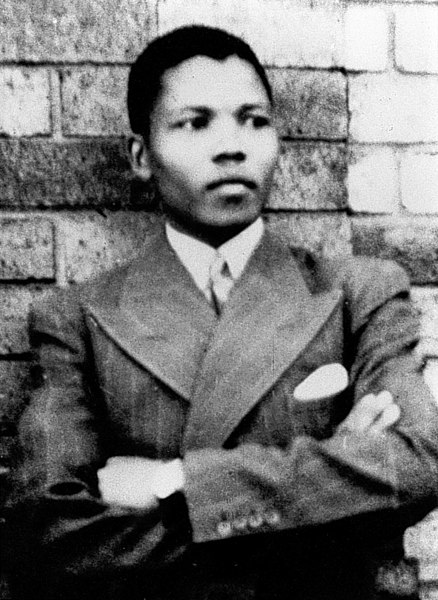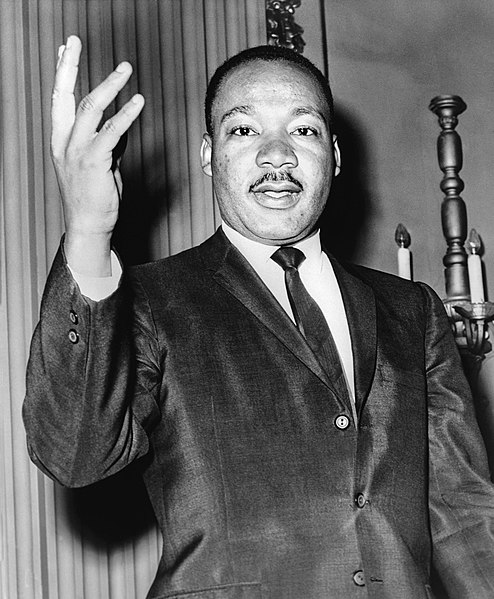
Gandhi (South Africa, 1906) (credit: Wikimedia Commons)
For thousands of years, we have evolved culturally
by this ugly means. For centuries, no other species and no change in our
environment has been able to shake us. Paradoxically, we save individuals born
with genetically transmitted defects that in any other species would be fatal,
yet these individuals go on to reproduce. We aren’t evolving genetically
anymore; if anything, we’re devolving. But we are evolving in a cultural-behavioral
way.
We prey on ourselves, not eating corpses, but
killing followers of other cultures in order to cut out parts of our species’
total values/memes pool whose usefulness is fading. This system has worked
brutally, but efficiently, for a long time. Evidence that it works lies, for
example, in the way that within a generation of being conquered, most of the
people subjugated under the Romans were effectively “Romanized.” Rome had a
more vigorous and efficient culture than did any of the lands it conquered—a vigorous,
efficient culture that swallowed up its neighbors, their territories, peoples,
and ways of life. Similar cases fill History. For centuries, war worked.
Today, however, war has made itself obsolete. Our
species very likely would not survive another world war. Combining what we know
of human history and of our war habit with what we know of our present levels
of technology leads us to envision a worldwide bloom of huge mushroom clouds,
followed within a decade by images of our once beautiful, blue planet, burned
almost bare and wrapped in drifting clouds of smoke and ash.
On the other hand, we have to evolve. If we give up
war, will we devolve culturally, grow weak and sickly, then die out, like deer
that have no predators because they’re isolated on an island? Experts have
flat-out said so. War, they insist, is ugly but necessary. They’re ready to
risk nuclear holocaust, even initiate it.2
However, there is evidence that supports the belief
that humans may learn to live, multiply, and spread—that is, to remain vigorous—without
constantly fighting one another. The strongest evidence may lie in how, in
every society, there are some people who show a clear inclination toward
settling apparently irreconcilable differences by negotiation rather than by
violence. Some people can stick to the ways of Reason even when they're attacked personally, physically.

Nelson Mandela (1937) (credit: author unknown, via Wikimedia Commons)
They are acknowledging implicitly that they do not believe any single
worldview or set of values (even the ones they learned as children) necessarily
leads to the only viable, “right” way of life. From a social sciences viewpoint,
we could say the value systems of these more peaceful members of society assign
a higher value to the lives of other humans than to reducing the anxieties they
experience when they see other humans living in ways that seem strange to them.

Martin Luther King, Jr. (credit: Dick DeMarsico, via Wikimedia Commons)
No comments:
Post a Comment
What are your thoughts now? Comment and I will reply. I promise.